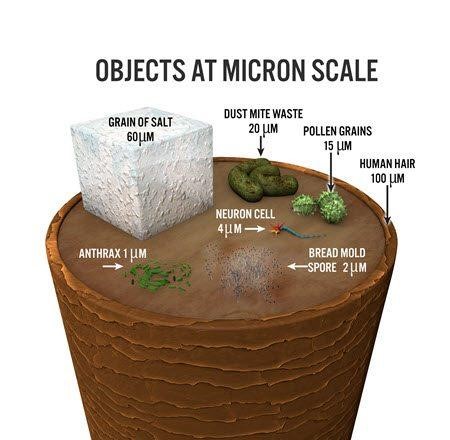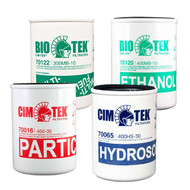Choosing the Right Fuel Filter
Posted by Brett Baker on Jun 1st 2018
An important piece of equipment for any fueling application is a fuel filter. Fuel filters are designed to meet different customer requirements. Some remove particulates (dirt, rust, and microbial growth), some remove water while others remove both particulates and water. In any case, when the contaminated fuel passes through the filter, the filter captures the particulates and the size of the filter’s pores (micron level) determines which particles can pass through. When the filters in a fueling system are not regularly replaced, the contamination in the fuel will eventually take its toll on the operating equipment.
How to Choose a Fuel Filter
Filters can be compatible with a variety of fuels, but to choose the correct filter, first, you must identify what type of fuel is being filtered.
- Non-Reformulated Gasoline – Gasoline that is not blended with ethanol.
- Reformulated Gasoline – Gasoline blended with ethanol up to E85.
- Diesel – Diesel that is not blended with biodiesel (Ultra Low Sulfur).
- Biodiesel – B100 and biodiesel blended with diesel fuel.
Next, you must determine whether you are worried about water contamination. Some filters address both particulate and water contamination. When fuel containing excess water passes through a filter, the media notifies the operator by restricting flow and increasing differential pressure (the pressure along the flow path).
Once you’ve determined what type of fuel you’re filtering and whether you are concerned with water contamination or not, you are ready to select the media. There are different types of media offered by numerous companies. Each type serves a specific purpose, be sure to check your system’s manual for the recommended media type. Common choices are:
- Cellulose – Cellulose media filters are made with paper, a resin bound plant-based fiber material. They are specifically used for particulate removal only and are not suitable for fine filtration. For use with gasoline, diesel, and ultra-low sulfur diesel (ULSD).
- Microglass– Contains synthetic fibers that are smaller in size and more uniform in diameter than the natural fibers of the Cellulose filters, this increases the life of the filter. Recommended for use with Bio-fuels, ethanol blended gasoline up to E15, ultra-low sulfur diesel (ULSD), and all biodiesel blends.
- Hydrosorb - Hydroglass– Used for both particulate removal and water detection and absorption. For use with gasoline, diesel, biodiesel up to B20, and ultra-low sulfur diesel (ULSD).
- BioTek High Alcohol– Used for particulate removal in E85 and B100 fuels.
- Monitor Filters- This filter’s exclusive design detects phase separation in ethanol blends and water in straight gasoline. Phase Separation is a chemical reaction that separates the contents of the tank into gasoline, alcohol, and water.
Selecting the right filter media is just half the battle. Filter sizes vary widely and are made to accommodate a wide range of applications and flow rates. To determine which filter size will work best for your application, you must first know the flow rate for your system. In cases where you are replacing a spin-on filter on an existing adapter, you will also need to know the thread size of your adapter. If buying a new filter and adapter, you will also want to determine the size of your fuel flow line or dispensing hose to select the appropriate adapter. If the thread size is unknown, you can easily cross-reference the old filter you are replacing.
The next choice you will need to make is the filter’s micron level or what size particles you want the filter to catch. The lower the micron rating on a filter, the smaller the particles that will be filtered out of your fuel and the more your engine will be protected. For example, a filter with a micron rating of “10”, will filter out particles 10 microns and larger while a filter with a micron level of “2” will filter out particles that are 2 microns or larger. The downside is the smaller the micron rating, the more particles the filter will catch and the shorter amount of time your filter will last. Please check the appropriate micron rating recommended by the equipment you will be operating.

Please note: A grain of salt is 60 microns and a single bread mold spore is 2 microns.
When to Change a Fuel Filter?
Over time, contaminants will slowly and gradually reduce your flow rate. If you are experiencing a reduction in flow rate, it is important to correct the issue to increase performance and longevity of your equipment.
To determine if you have dirt particles in your fuel, obtain a fuel sample through the pump, visually inspect for suspended particles.
Water contamination usually happens suddenly, causing an abrupt reduction in flow rate. Use a water finding paste and “stick the tank” to determine if you have water and if it is a problem.
If you are replacing your filter more frequently than expected, you may want to have your fuel supplier test your fuel for contaminants, including water.
Filters are not the only thing in the system that affects flow. There are several variables that can restrict flow. If the flow rate is critical in your application and you are anticipating flow at or near the maximum flow rate for a given filter model/series, we recommend moving up in size. Also, if you anticipate low temperatures, you may want to use a fuel additive to raise the fuel temperature, as cold climates can lead to reduced flow rates in some fuels.
Why Change a Fuel Filter?
It’s important to change the fuel filter to help ensure a trouble-free performance. Fuel moving through an old filter will get slowed down and work the pump harder. Maximize the life of your equipment by monitoring your performance and change the filter when you notice a decrease in flow rate.
Service stations and other applications that have high volume use should replace their filters at least every 6 months. In other applications where use is moderate, filters should be replaced at least once a year. It’s a simple maintenance task that will save you time and money.
For more information about how to choose filters please watch our Fuel Filter video.


